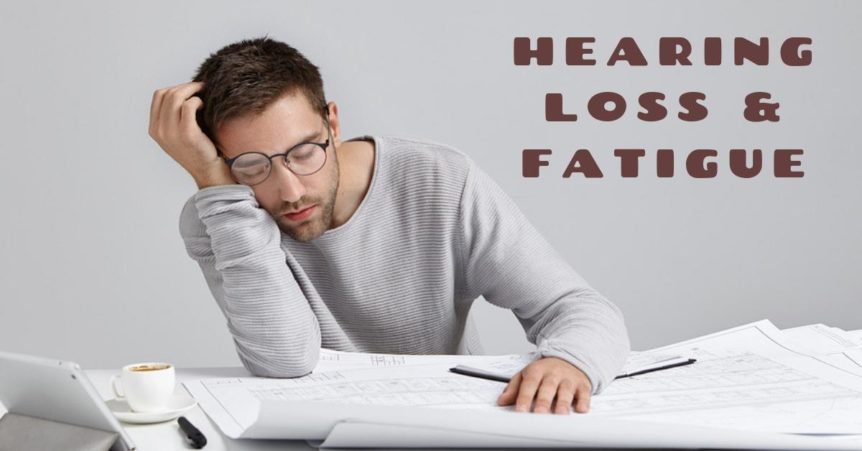- The Harm of Smoking to the Ears - April 9, 2025
- The Importance of Exercise for Hearing Health - March 11, 2025
- Movie Theaters and Hearing Aids - February 13, 2025
Yawn! Does it ever seem like just listening to people wears you out? Well, if you deal with hearing loss, that just might be the case! Our hearing may not seem like it takes a lot of muscle, but when we struggle to hear, it actually strains our whole body and can leave you feeling exhausted.
If you manage hearing loss in your life it is important to recognize this extra stress and take time out to rest and restore your energy. When you are looking for ways to alleviate some of the strain hearing loss causes, start with talking to your hearing specialist. Treating hearing loss with hearing aids can relieve some of the pressure hearing loss puts on our body.
The Roots of Hearing Loss
Like we said earlier, hearing isn’t often associated with physical exertion – so why does hearing loss make us tired? Hearing loss puts your brain in a state of constant struggle and that can shortchange other physical tasks your mind processes.
Hearing loss can occur in a variety of ways, but most commonly, hearing loss is permanent and happens gradually over time as noise-related hearing damage occurs in the inner ear. Inside the inner ear, tiny “hair cells” are activated by the vibrations that sound waves cause in the air. These hair cells can detect a tremendous range of sounds, but they can also be easily damaged by sounds that are too loud. Unfortunately, a damaged hair cell has no means of repairing itself, so if a cell is damaged it erases a tiny part of our ability to hear a full range of sound.
Permanent noise-related hearing loss happens when many hair cells have been damaged and significant gaps exist in the sounds we can hear clearly. Some sounds, like high-pitched noises may vanish from our hearing range, while others like speech sound muffled or unclear. When we don’t hear the full range of sound, our brain tries to race to interpret what we do hear.
Brain Strain
The work of piecing together partial, muffled and incomplete sounds falls upon the brain. Before hearing loss becomes an issue, hearing is streamlined in the mind and we can interpret meaning from the sounds our ears pick up near instantaneously.
When hearing loss is present, our comprehension of sound slows down. The brain cannot use its familiar pathways and shortcuts to determine meaning. Instead, comprehension needs to be pieced together from partial information and context clues. Not only does this require our brain to work outside its established auditory pathways, it also means we need more mental resources to get to do the detective work we now need to find meaning in sound. With hearing loss, our brain is working harder and get to a less accurate interpretation of sound and it is doing it much slower than healthy hearing.
This already means that with hearing loss you are working much harder mentally in your everyday life, which can provoke fatigue. The other factor is that by taking up more mental resources for hearing, that energy is pulled away from other areas of our cognitive functioning. This can mean it is harder to remember things or maintain our physical balance. The strain on cognitive functioning that hearing loss engenders has been linked to an increased rate of falling injuries and is thought to be part of the connection between hearing loss and dementia.
Give Your Hearing A Break
The extra work your brain and body do when you deal with hearing loss is more than enough to tire you out. It is important to acknowledge this limitation, and to let your body rest. Try to break up your busiest, noisiest days with frequent quiet breaks. Even a short rest from the pressures of hearing can give your body the chance to recharge.
Using hearing aids is another important way to make hearing easier and lessen the mental strain of hearing loss. Hearing aids are programmed specifically to address the areas of your hearing where you need the most boost, compensating for the gaps in how you hear. Hearing aids improve your comprehension speed and accuracy and allow you to free up your concentration for other cognitive tasks.
Better Hearing Center
If you think your hearing is creating a drag in your life, your first step is to schedule a comprehensive hearing test. At Better Hearing Center, we offer thorough exams as well as hearing care focused on finding the right solution for your lifestyle. We can match you with the right hearing solution and help you hear your best – so why wait? Drop us a line today to see what Better Hearing Center can do for you.

